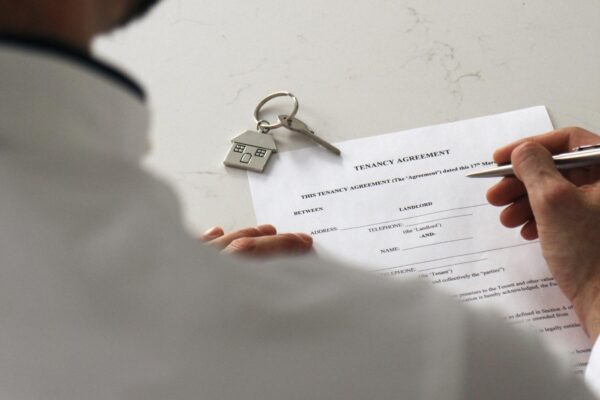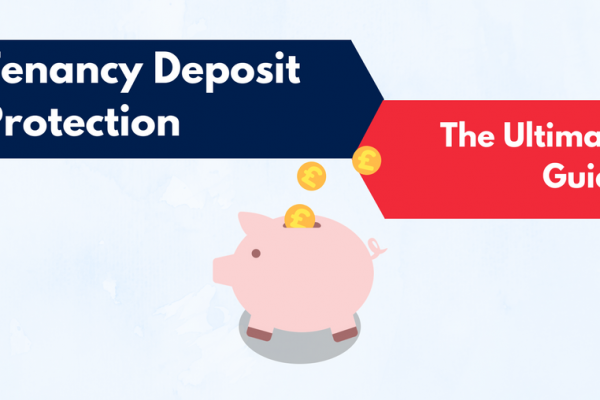Many DIY landlords fear that they have forgotten to do something important. So we’ve made a checklist of legal landlord responsibilities you must perform when letting a property.
Tick off everything on this new landlord starter checklist, and relax – you’ll have done everything you need to do when setting up a new tenancy!
Summary of Checklist
Before You Find Your Tenant
- Get permission
- Housing Licensing Schemes
- EPC
- Gas Safety
- Electrical Installation Condition Report
- Portable Appliance Testing
- Smoke & Carbon Monoxide Alarms
- Fire Safety & Furniture
- Legionnaires’ Disease
After You Find Your Tenant
- Right to Rent
- Draw up a Contract
- Registering the Security Deposit
- Serve the Prescribed Information for the Security Deposit
- Serve: the How to Rent Guide
- Inventory
- Paying Tax on Rental Income
Before You Find Tenants
There are some landlord duties you need to get working on well before renting out your home. We’d advise adding a few months to your timetable to make sure you can fully complete and assess all the following points, but in theory, they may only take a week or two to conquer!
1. Make Sure You Have Permission
Mortgagers
If you do not own your property outright (i.e. if you have a mortgage), then you will need to make sure that you have permission from your lender before you rent it out.
If you have a mortgage on the property, then you will need to go through its terms to check for conditions about letting and residence. Contact your lender to find out what you need to do.
You don’t have to have a buy-to-let mortgage to rent out a property, but your lender may want you to change to one, or to reach some other kind of arrangement before they consent to letting the property to tenants.
Some mortgage agreements limit the kinds of tenants that you can let to, therefore, we always advise that you check the terms of any new mortgage agreement.
Leaseholders
Secondly, if you own your property leasehold (with or without a mortgage), then you may need permission from the freeholder to let the property.
The freeholder might give consent with conditions: such as a limit on the amount of time you can let it for. You’ll have to make sure that the contract you draw up with your tenants contains the details of any of these conditions.
2. Housing Licensing
Both the UK Government and local authorities have the power to introduce licensing schemes. If your property meets the conditions set out in their schemes, then you will need to procure a licence before renting out your property.
There are three types of licensing.
Mandatory licensing operates at a national level, and requires that any large HMO in the private rental sector has a licence. Then, on a more regional scale, local authorities can require further licensing. There are two kinds: Additional HMO licensing and Selective licensing .
So which schemes apply to you and do you need a licence? Find the answer to this detailed topic in our fantastic guide to HMOs and housing licensing!
You’ll need to contact your local council to find out for sure if you need a licence, since every area has its own rules.
3. Energy Performance Certificate (EPC)
The EPC is an assessment of how energy-efficient your property is. You will need one whenever you are renting (or selling) your property. In England & Wales, you must have one ordered to show potential tenants before you let the property. In Scotland, you must have a valid EPC for the tenants to look at when advertising your property.
Since 2020, all properties in England and Wales have required an EPC rating of E or above, however, there are plans in place to increase this threshold to a rating of D for all new tenancies by 2025. Similarly, in Scotland, there is an early stage proposal to introduce a requirement for all privately rented properties to have a rating of C by 2028.
Once you have one for the property, it remains valid for 10 years.
Order your EPC through OpenRent for nationwide coverage and great low prices.
Order EPC4. Gas Safety Certificate
You will need to have a Gas Safety check performed by a Gas Safe at your property every year. The check includes appliances, flues and pipework, and the engineer will advise what work, if any, they recommend after the check.
You should follow their advice and fix any issues before the tenants move in. All of OpenRent’s gas engineers are Gas Safe registered.
5. Electrical Installation Condition Report (EICR)
Landlords with properties in England and Scotland need to conduct an Electrical Installation Condition Report (EICR) in order to let their properties at the beginning of the tenancy. If the report recommends remedial work, the landlord must perform it within 28 days of receiving the failed report. Properties let without an EICR risk a £30,000 fine for the landlord.
Since 1st December 2022, all new occupation contracts in Wales also require a valid EICR as per The Renting Homes (Wales) Act 2016. Ongoing tenancies that began in Wales before 1st December 2022 will have until 1st December 2023 to comply with the new regulations. Landlords must provide their contract-holders with a copy of the EICR no later than 14 days after the occupation date or 14 days after the inspection date, if the inspection took place mid-contract.
Read the full EICR guide here.
6. Portable Appliance Testing (PAT)
Performing Portable Appliance Testing is not a legal requirement for landlords, however, you are responsible for the safety of electrical appliances that you supply for the tenants’ use, so making sure they are all safe should be a priority!
PAT testing is a great way to do this, while also ensuring you have a record of the steps you took to protect your tenants’ safety.
7. Smoke & Carbon Monoxide Alarms
In England, landlords must install a smoke alarm on every inhabited floor of the property.
Legally, you also have to install a carbon monoxide (CO) alarm in “any room used as living accommodation where solid fuel is used.” We, however, would very strongly recommend that all landlords provide all their properties with an audible CO alarm.
You must ensure both kinds of alarm are working at the start of every new tenancy. Here’s a guide by the Fire Safety Advice Centre on installing alarms.
In Wales, landlords must also install smoke alarms, and connect them to the electrical supply, on every storey of the dwelling. Each alarm should also be linked to any other smoke alarms required by the legislation (e.g. you can install multiple alarms on each floor, but they don’t all need to be interlinked). Landlords must also install carbon monoxide alarms in any room where a gas, oil or solid fuel appliance is present.
Similarly, in Scotland, all homes require interlinked fire alarms and a carbon monoxide detector in each room with a carbon-fuelled appliance (e.g. a boiler, fire, heater or flue). With regards to fire alarm placement, there must be:
- One alarm in the living room/ most-used room
- One alarm in every hallway and landing
- One alarm in the kitchen
8. Fire Safety & Furniture
If you are supplying furnishings to your property, you’ll need to make sure that they meet Furniture and Furnishings (Fire Safety) Regulations. The regulations apply to a wide range of furniture including sofas, chairs, beds and mattresses. You can find the complete list here.
As a private landlord, you will need to ensure each item you supply to the property is compliant with these regulations. You can do this by looking at the labels and asking the supplier/manufacturer.
9. Legionnaires’ Disease
Assessing properties for the risk of Legionnaires’ disease is a legal requirement. Legionnaire’s is caused by bacteria which can grow in stagnant water. You do not need to hire someone to do this – usually landlords will be competent enough to assess their own properties.
In most homes, the risk will be low, because domestic water systems are typically in constant use, so the water will not be stagnant for long. Additionally, hot water is heated enough to kill bacteria, and the mains supplies the cold water – which in the UK is treated to prevent bacterial growth.
If your property is atypical in its water system and you feel it is at a higher risk, or you don’t feel competent in making the assessment, you can hire an assessor.
Find more information on landlords’ Legionnaires’ disease responsibilities here.
After Finding Your Tenants
Once you have found and referenced your tenants, you’ll have more legal duties to carry out. These are your duties after finding tenants and becoming a landlord:
Referencing your tenants for just £20. All you need is their name, email and permission to begin.
Begin referencing10. Right to Rent
Landlords need to check that their tenants have the ‘right to rent’ i.e. that they can legally reside in the UK.
You’ll need to perform a Right to Rent Check on your tenants before they move in. This is an inspection of the original, physical documents proving the tenants’ right to rent, in the presence of the tenants (so as to be able to verify photo ID in person).
We have put together a full guide to checking right to rent here.
Remember: You must perform this check on all tenants before the tenancy begins. It is illegal to only check tenants you suspect are not British. Similarly, you must be careful not to exclude potential tenants before undertaking the checks if you think they might fail, as this could be discriminatory. There are also large penalty fines of up to £3,000 if the Home Office finds you have let a property to someone who does not have the right to rent.
Here is a Government guide to checking your tenants’ Right to Rent documents. You will also need to keep copies of the documents.
11. Draw Up a Contract (AST)
You’ll need to set up a proper Assured Shorthold Tenancy agreement (AST) in order to specify the rules, terms, length, tenants and rent of the tenancy. We provide a free-to-download AST to our landlords if you want to see what a suitable AST looks like.
It’s essential that every adult that will be living in the property signs the AST and that you make a copy available to all tenants. Our Rent Now service lets you add customised clauses and also sign the contract digitally, allowing you to keep the whole process online. Digital signatures have been a legally sound way of signing contracts for many years and are usually much more convenient for all parties than signing by hand.
12. Registering the Security Deposit
When you take the security deposit as part of the move-in process, you need to register it in a Government approved scheme within 30 days of receiving the funds. There are three in England & Wales, and different schemes in Scotland and Northern Ireland.
13. Serving the Prescribed Information for the Security Deposit
After registering the deposit, you will need to give your tenants information about how you have registered their deposit and how they can contest deductions, etc. You have 30 days to do this from the date the tenant pays you.
You can learn more about the information you need to give your tenants here, but the specific deposit scheme you choose will also have material to help you fulfil this requirement. If you don’t give your tenants the prescribed information about their deposit, then it may impede your ability to serve a section 21 eviction notice.
Read more about section 21 evictions here.
14. Serve the How to Rent Guide
In England, landlords have to give their tenants a guide known as the How to Rent The Checklist for Renting in England. Give it to your tenants when they move in and then get a physical, signed receipt or an email to confirm that you have completed this duty.
Just like the deposit information, if you don’t give your tenants the How to Rent booklet, then it may impede your ability to serve a section 21 eviction. As above, if you choose to use Rent Now to set up your tenancy, then you don’t need to worry about providing your tenants with the How to Rent guide – we will do this for you at the same time as serving the prescribed information.
15. Inventory
An inventory is a report of the condition and contents of your property. You should perform one, ideally, on the first day of the tenancy, and then get the tenants to sign it to show they agree with the report’s assessment of the property.
It’s OK to give them a few days to suggest amendments, but the sooner it is signed by all parties, the better. Achieving this quickly reduces the chance for damage to occur before you agree the inventory.
Although the law does not require you to undertake an inventory of the property, it is very much advisable. Aside from being an accurate record of the contents of your property and its condition, it is also invaluable if you need to make deductions from the security deposit at the end of the tenancy.
You can use the inventory to compare the condition of the property before and after the tenants lived there, and justify any deductions. An inventry is absolutely essential evidence if the tenants raise a dispute through the deposit scheme.
Many landlords prefer to get a neutral third party in to perform the inventory. Professional inventory clerks know what to look out for and make the inventory digitally accessible. At OpenRent, we offer a check-in inventory service where the tenants can also sign the report digitally.
Take a look at our inventory services here.
16. Paying Tax on Rental Income
If you expect to have taxable profits from your rental income, then you’ll need to prepare to pay income tax on that money.
The way to do this is via the property section of a Self Assessment tax return. You will need to complete the return by October of the following financial year. This gives you about five months after the end of the financial year in April to complete the return.
This only applies if your rental income after expenses is over £2,500, so doing the maths on this before your tenancy will help you avoid stress – and a tax penalty – later should you fail to complete your tax return in time.




Start the discussion at community.openrent.co.uk